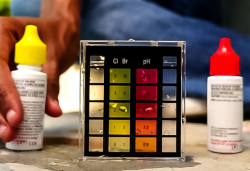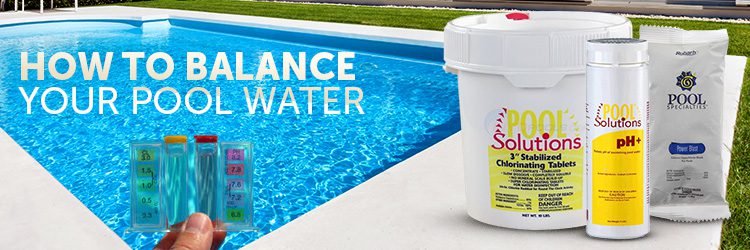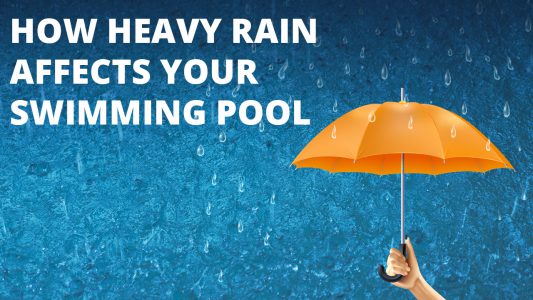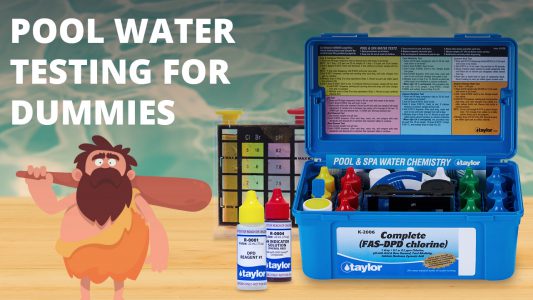One of the most frequently asked questions we hear from new pool owners is, “How often should I test my pool water?” Testing your pool water is extremely important to your pool’s health. In fact, it is a fundamental step in maintaining a balanced pool.
Still, with so many different chemicals, how do you determine when it’s time to check each level?
How Often Should I Test My Pool Water?
Testing your pool water is an important step in maintaining a fresh and healthy swimming pool. However, the time span between testing your chemical levels may vary. The time between testing can vary due to the number of bathers, air, and water temperature. Still, there is a general schedule new pool owners can follow to ensure they are maintaining proper chemical levels.
Chlorine

On average, you should check your chlorine levels at least two to three times a week.
However, for new pool owners, you may want to begin by checking your chlorine levels once a day. This daily routine gives pool owners time to learn their pool in relation to their swimming habits and weather.
Once you learn how your swimming pool works, you can spread out the time between tests.
pH
You should check your pH levels whenever you check your chlorine levels. In fact, the pH and chlorine levels seemingly work together. If your pH level is in check, your chlorine will then be an effective sanitizer.
On average, you should check your pH levels with your chlorine levels at least two to three times a week
If your pH is consistently balanced, you know that the chlorine is effectively sanitizing your water.
Total Alkalinity (TA)
Your total alkalinity measures how much alkaline substances are in your water. If your TA is too low, it causes corrosion, scaling, staining, green water, burning eyes, and fluctuating pH levels.
However, if your TA is too high, your water becomes cloudy and it becomes difficult to adjust your pH levels.
As a precautionary measure, check your TA levels once a week.
Calcium Hardness
You should test the calcium levels in your pool once a month.
Keeping your calcium hardness levels managed, helps keep the water in proper chemical balance. Water with high calcium hardness gets cloudy (unless your alkalinity and/or pH is low enough to compensate.) The excess calcium from your water appears as a crusty, grayish-white scale. However, water with low calcium hardness becomes aggressive.
Total Dissolved Solids (TDS)
Simply put, total dissolved solids are pretty much anything in your pool (including chemicals, dust, pollen, etc.) that dissolves into the water. Everything you add increases the TDS. If this level is too high, it can disturb the efficiency and effectiveness of your other chemicals.
Test your TDS levels once a month.
Salt
If you own a salt pool then your salt system measures your salt levels. Depending on the make and model of your salt system, your system sends special alerts to remind the pool owner to add or reduce the salt. However, we still recommend independently testing your salt levels once a month. This is simply a reassurance that your salt system is working correctly.
Once you get a testing schedule that works for you and your pool, balancing your pool becomes a little less confusing and a lot more manageable. With a lot of things in life, the more you do something, the more comfortable you become with the process.
If you are unsure about your current chemical levels or feel your home testing kit is inaccurate, have a professional test it. Many local pool stores actually offer free water testing. Additionally, if you need help balancing your pool water, we recommend reading our “How to Balance Your Pool Water” blog below.













